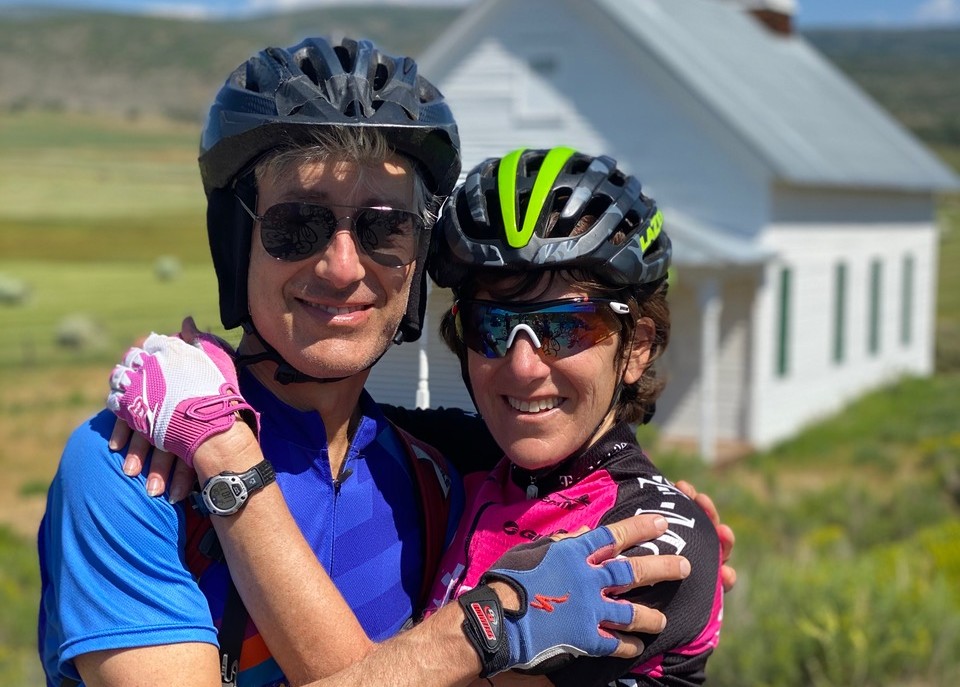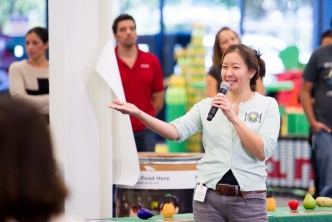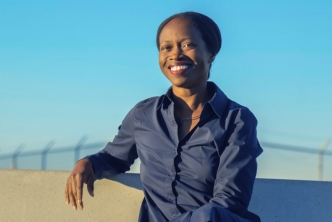
In conversation with Laura Lauder
Magnify Community recently met virtually with Laura Lauder, Magnify Community Pledger and long-time philanthropist, to discuss how she got started in philanthropy, and what she’s learned along the way. (Comments have been condensed and lightly edited for clarity.)
You’ve been a philanthropist your entire adult life. How did that journey start for you?
Laura Lauder: When I was 22, I had my first job and thought about what Judaism says about our role in the world, our responsibility, and how we are supposed to help and care for others. And so, I made a decision to give 10% of my gross salary to charity. I was an assistant buyer at Macy's California earning $13,000 a year, so giving $1,300 to charity was a lot, but it wasn't a lot. In order to fulfill the Jewish commandment of Tikkun Olam, or repairing the world, I changed my priorities to be able to do that. 10 years later, I fell in love with and married Gary Lauder and that changed everything. Together, we wanted to balance our family life, our professional life, and our philanthropic life. We wanted to model the importance of balance, and of giving back, to our children, and to do our share based on our assets. So we added some zeros [to what I was giving]!
The way you and your family give is very grounded in values and in your Jewish heritage. Tell us about that.
What are the [Jewish philosopher] Maimonides levels of philanthropy and the circles that Judaism says one should support? The innermost core is your family and the next circle around that is your local community. From there, priorities become more diverse. So I've always had a very special place in my heart for being a responsible citizen in my local community, both from my Jewish heritage as well as just from being a community citizen. We wanted to transmit those values to our children, using the framework of values of tzedakah, which means “righteous giving” in Hebrew, and Tzedek, tzedek tirdof, which means “justice, justice shall you pursue.” By teaching these values to our kids, they learn that they are responsible to more than just themselves. Those circles of giving to community and beyond become very, very important.
How do you and your family structure your giving?
We have a donor advised fund at the Jewish Community Federation and Endowment Fund, and we have advisors who help us think about our personal philanthropy and our Lauder Family Giving Circle.
Our two children received charitable contributions from their bar and bat mitzvah attendees [at ceremonies commemorating the entrance into Jewish adulthood at age 13]. In lieu of gifts, people made contributions to what we called their Teen Philanthropy Fund. That was essentially just a sub fund of our Donor Advised Fund. We matched whatever was given to them in a Lauder Family Giving Circle grant round. Each year for five years they would put donations into our Lauder Family Giving Circle Fund and the kids would take turns being the director of the criteria, the mission, the purpose, the details around how it would be allocated. It worked out beautifully because it taught them the value of a very structured process through which they made philanthropic decisions using philanthropic advisors who are experts. Yet their involvement all along the way was clearly critical to making the decisions that fit our family’s values and the criteria that the kids set.
Tell us about the way your giving may have changed, particularly in light of COVID.
Well, I would say it’s changed dramatically during this COVID situation. We've always been involved in SV2 and other local giving circles, but through Magnify, we’ve gotten even more exposure to the local philanthropic landscape, identifying pockets of excellence, where nonprofits are doing phenomenal work to raise standards of living or provide training. As a result of the Magnify Community Pledge, I recognize how important it is not only to be much more educated about all of the issues of how COVID has affected the community, but also to work with other funders and hear how they're addressing the issues and then to participate in matches, like John Sobrato’s match to help undocumented immigrants. For example, we were never major donors to food banks, but we learned about the issues that the food banks were confronting in terms of the dramatic increase in need and how they were trying to mobilize volunteers. Even the National Guard was being utilized to help distribute food. I would never have imagined giving $50,000 to a food bank. It felt very non-strategic to me. But in the midst of the pandemic and learning about the needs, that was really critical. And then we made it a challenge grant and other Pledgers ended up matching our grant. And that was all part of a match created by another Pledger. So once again, the leverage really, really intensified all of our philanthropy in this area.
You often speak about impact, leverage, and scale. Are there particular things that you look for when you're thinking about making a donation to a nonprofit?
Excellence and leadership at the nonprofit. That's one of the reasons why it was so wonderful to meet the CEOs of the nonprofits. When you meet the CEO of JobTrain or the Food Bank or Puente, and you hear their vision for the future, that's absolutely critical. That allows me to say with confidence, “I can scale this with a significant gift because I trust the quality of the execution of this leader to be able to ensure impact with my grant.”
What do you say to the donors who are laser-focused on data?
Data is critical, but it has to be used in context. Data is only as good as the people who are analyzing it, and I believe that you have to analyze it in community with others [who are part of the work on the ground]. People have to discuss and debate the right use of that data because it may or may not be relevant to the potential solution that you're recommending. Be humble enough to be open to the feedback of how that data is really relevant, impactful, and directional in terms of how you should give your money.
Are there any other pieces of advice that you would give to Silicon Valley donors, especially ones who are getting started in philanthropy?
Do it with others. If you try to start giving money away by yourself and just write checks, number one, it's not very fulfilling, number two, the impact you'll have is very low, and number three, the opportunity for scale is bupkis [minimal]. You're not leveraging anything. But if you do it with others and get inspired by each other, that’s where a good philanthropist is really going to have impact because they are inspired by a great leader of a nonprofit, and by the nature of a gap and the needs. Inspiration is so motivational: donors will do so much more!


